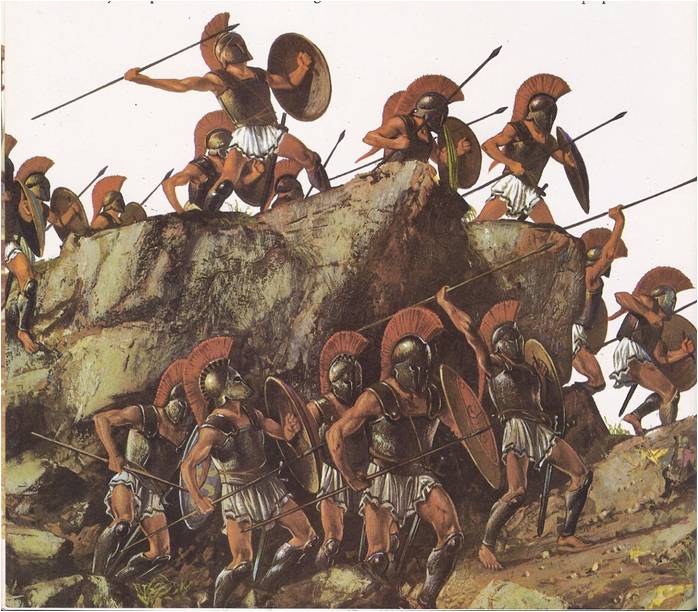TRUMPETS sounded the fire alarm in Rome on the night of July 18, in the year 64. It seemed that the flames first broke out in the crowded section near the Great Circus and spread rapidly, driven by a strong wind to row after row of wooden houses. Sparks carried by the wind started other fires. People fled in panic. The fire roared on unchecked, continuing for six days and six nights. When it was finally brought under control, most of the city lay in ruins. People could not believe that one small accidental fire somewhere could have caused all that damage. Some thought several fires had started at the same time. They looked about for someone to blame. Soon they began saying that Nero, the emperor, had set the fire himself. Others said that he had murdered members of his own family and the angry gods were striking back with thunderbolts from the sky. Frightened by such talk, Nero turned suspicion away from himself by blaming the Christians. Not much was known about them, but since they were members of the poorer classes they were looked upon with suspicion. The bread and wine of their suppers, which represented the body and blood of Jesus, led many Romans to believe that the Christians were actually cannibals. There were rumors that Christians killed and ate small children at their secret meetings. Nero’s persecution of the Christians, therefore, proved to be highly popular. The prisons were soon filled with a “great multitude” of Christians and executions and brutal tortures went on day after day in Nero’s Circus, which was located where St. Peter’s Cathedral stands today. Peter and Paul may have been executed during or shortly after this wave of persecution. The “great multitude” that filled the prisons suggests that the Christian …
Read More »Greek Against Greek 430 B. C. – 404 B. C.
About 425 B. C., a lonely man, in a country that was not his own, sat down to write the story of a war that had begun six years before. Thucydides, an Athenian, had fought in the war’s first battles. He had been a general, in command of thousands of his city’s troops. Then he was ordered to go to the aid of another commander whose men were outnumbered. When he arrived, the battle had already been fought and lost. It was not his fault but the people of Athens were too anxious about the war to consider that. They stripped Thucydides of his command and forced him to leave his homeland. Now, while the war raged on, he could only watch and he was troubled by the things he saw. Athens and its rival Sparta were caught in a deadly struggle to see which would be the master of the Greek world. Men died, cities were destroyed and nothing was gained, but the war went on. Thucydides began to write about the senseless fighting, hoping that he might teach the men of another time to avoid war. He wrote about the ambassadors from the city of Corinth, who spoke to the Spartans in their assembly, warning them about Athens. “You have no idea what kind of people these Athenians are”, the Corinthians said, “how altogether different from you. They are always thinking up new schemes and they are quick to make plans and to do something about them; but you are happy with what you have and slow to do even what is necessary. The Athenians are bold and adventurous; you Spartans are cautious and afraid to trust your own strength. They love foreign adventure, which you hate, because they think there is something to win, while you think …
Read More »

